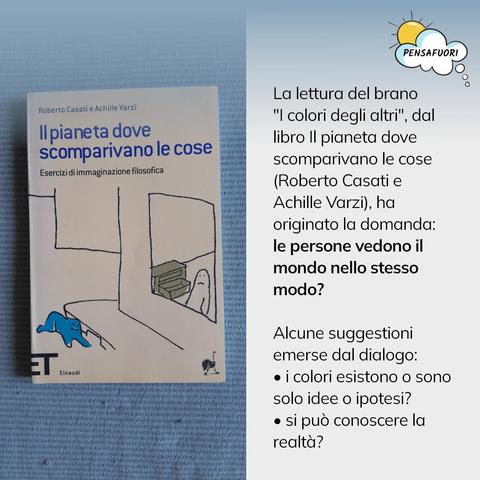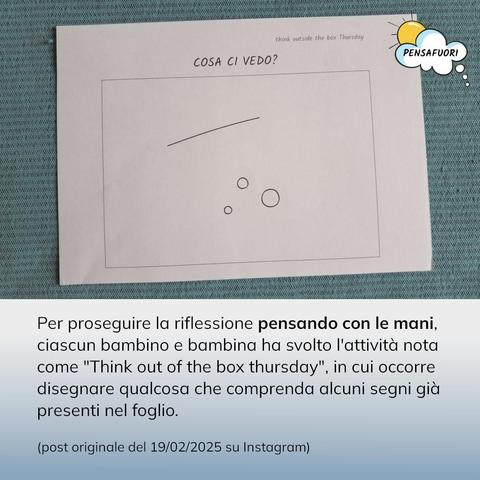www.sciencealert.com/teaching-chi...
#Teaching #Children #Philosophy
#P4C #Semantics #Perception
#WordsAreUnitsOfBrainFunction
RE: https://bsky.app/profile/did:plc:ss57ywhxcvh62qbdbfc4c252/post/3lom7lqwwsc2f
Teaching Children Philosophy C...
#P4C
Need to improve the information "watershed" with #TransitiveTrust and #SharedFacts; take good care that flammable people are "well-hydrated" ...
#IgnoranceHighlyCombustible #CarlSagan
#PersonalNetworks #CollectiveLearning
#Science #Math #Logic #P4C
RE: https://bsky.app/profile/did:plc:ylfu4f4oxg2nhxuvlka7nozt/post/3lodvmj66ls23
Of note, #PhilosophyForChildren #P4C have been for ~two decades developing teaching materials for k12 students; they supported a randomized study with first graders and showed benefits to the students two years later
RE: https://bsky.app/profile/did:plc:e6ur6jc6v3wreqckf4bi5vpl/post/3lkooaojvpw2s
Our FREE "Teaching the Sentientism Worldview" webinar for the Autumn term is on Sep 26th from 17:30-18:30 UK time. Sign up below and share it around. The session is targeted at teachers but anyone is welcome to join. Reply if you have any questions - or if you'd like to share your experiences of teaching Sentientism in the classroom!
https://www.eventbrite.co.uk/e/952586280207
#reteacher #ReTeach #TeachPhilosophy #TeamRE #p4c #sentientisteducation
Do you expect higher-quality #dialogue in small group discussions or whole class discussions?
It might depend on the metric:
- small groups fostered more invitation for peers to weigh in (d = 0.78, p < 0.001)
- whole classes generated more justifications of one's viewpoint (d = 0.69, p < 0.001)
Loads more insight from Herculean corpus analyses involving over 4000 students from 5 countries: https://doi.org/10.1016/j.linged.2023.101223
#edu #teaching #argumentation #P4C #corpusLinguistics #textAsData #DevPsych
Teresa McCormack closed the #SPP2023 #preconference on #memory with “The value of remembering and anticipating experiences: a developmental perspective”
It was—as Teresa put it—dangerously close to an #xPhi talk. It adapted a famous thought experiment (from Derek Parfit?) to test kids’ and adults’ intuitions about how much we care about past, present, or future versions of us.
Follow Dr. McCormack on gScholar: https://scholar.google.com/citations?user=g9T7yn8AAAAJ&hl=en&oi=ao
Today I found Deena Weisberg's (and David Sobel's) #freeBook about how kids can develop scientific thinking! A (concernig) take-away: not all pedagogy is equal.
Traditional #teaching may prevent kids from becoming as reflective as "inquiry-based" approaches.
Book: Little Pea
By: Amy Crouse Rosenthal
Illustrations: Jen Corace
I found Little Pea to be a great tool for possibly introducing aesthetics, not only to young learners, but even to adults.
Is something good or bad in all possible worlds? This is often a question we hear when discussions turn to objective grounding of morality. I like how candy, something perceived to be good to us, is disgusting to the little Pea :)


